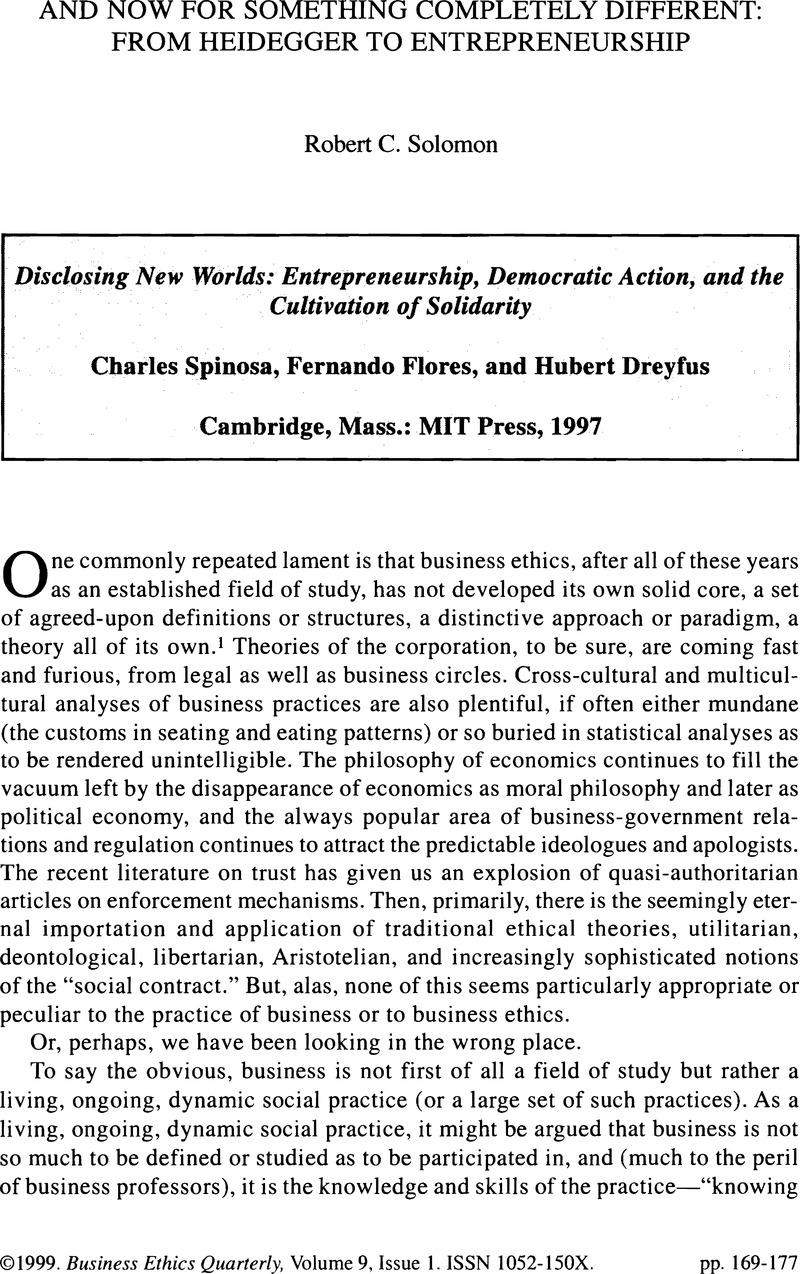Published online by Cambridge University Press: 23 January 2015

1 For instance, LaRue Hosmer, “5 Years, 20 issues, 141 Articles, and What?” Business Ethics Quarterly 6 (1996): 325-358.
2 Spinosa, Flores, and Dreyfus sometimes employ the Heideggerian distinction between the “ontic” (the everyday, taken-for-granted) and the “ontological” (the reflective, the awareness of the practice and its conditions as a practice). Mercifully, they keep most of this jargon to a miminum.
3 Henry Mintzburg, “The Manager’s Job: Folklore and Fact,” Harvard Business Review, July-August 1975. This discussion (in these paragraphs) is adapted from an earlier article I wrote, a response to an earlier article by Spinosa, Flores, and Dreyfus, in Inquiry 38, no. 1-2, June, 1995.
4 Cf., famously, Milton Friedman, “The Social Responsibility of Business is to Increase its Profits,” New York Times Magazine, September 13, 1970. Reprinted (and refuted) virtually everywhere but, e.g., in T. Donaldson and P. Werhane, Ethical Issues in Business (Englewood Cliffs, N.J.: Prentice-Hall, 1979), pp. 191-197.
5 Norman Bowie, “The Profit-Seeking Paradox,” in The Ethics of Administration, ed. N. Dale Wright (Provo: Brigham Young University Press, 1988).
6 Friedman, op. cit.